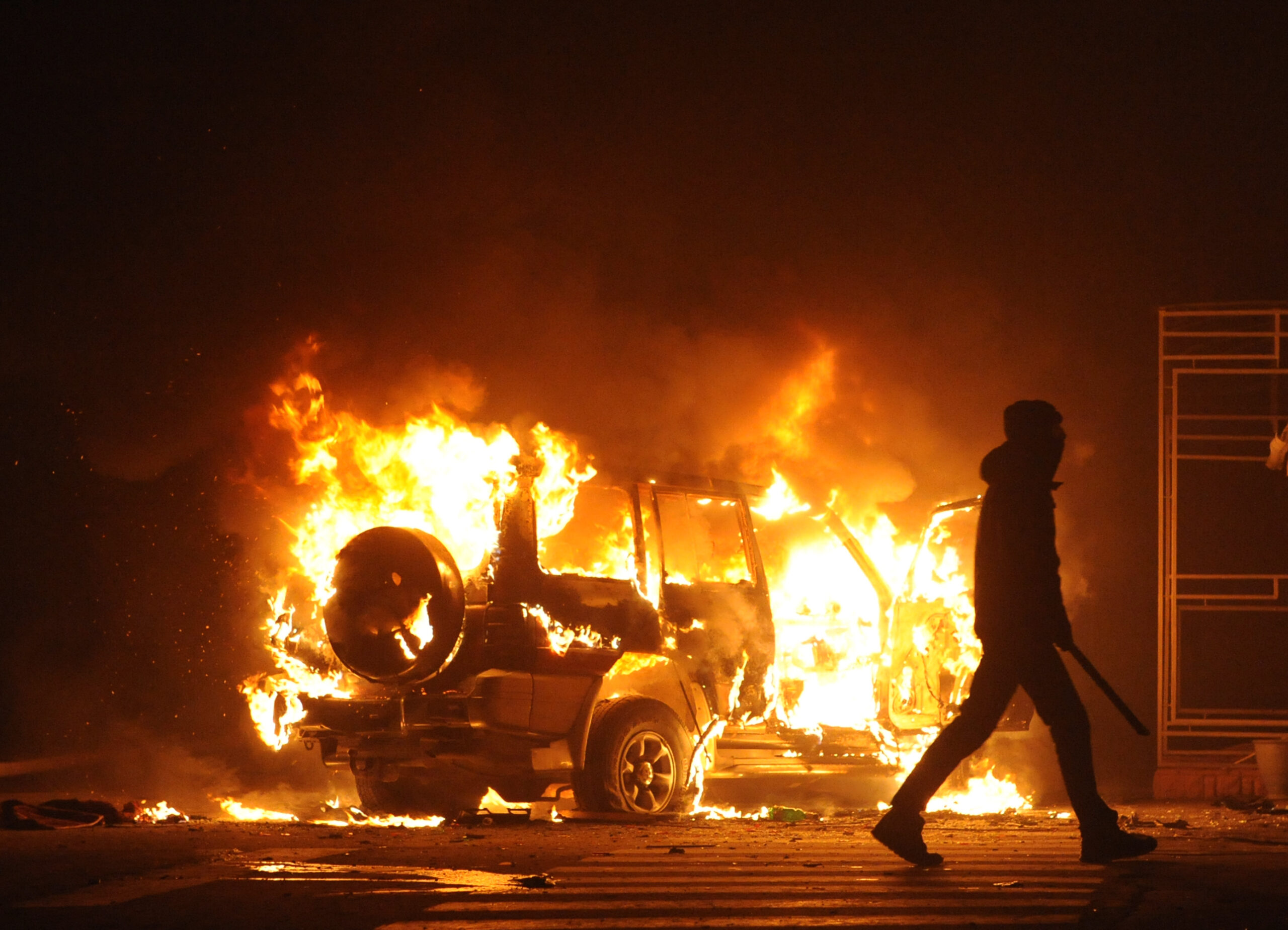« Suivant un doublement du prix du gaz naturel liquéfié, carburant le plus utilisé pour les voitures dans une grande partie du pays, des révoltes ont commencé en début janvier 2022 au Kazakhstan. Le pays étant riche en ressources naturelles, la colère initialement économique a fini par prendre une dimension politique dont les manifestations ont déclenché l’état d’urgence et causé la démission du gouvernement kazakh.
Déclarant les violences d’attaque terroriste, le président Tokaïev a demandé l’intervention de l’Organisation du traité de sécurité collective (« OTSC ») pour rétablir le contrôle sur place. À travers les médias internationaux, des rapports et des images d’émeutes brutales ont surgis. Les articles ainsi que des rapports d’organisations non-gouvernementales rapportent de personnes brutalisées, disparues et de plus de 8000 personnes arrêtées ou enfermées par les autorités kazakhs. Plus de 225 personnes seraient mortes à la suite des troubles.
Le président kazakh aurait refusé jusqu’à récemment des enquêtes indépendantes sur les événements en janvier. Fin janvier, une commission d’enquête aurait été créée pour procéder à une évaluation et s’occuper des victimes.
Dans ce contexte, nous aimerions poser les questions suivantes à Monsieur le Ministre des Affaires étrangères et européennes :
- Monsieur le Ministre, comment évalue-t-il l’intervention de OTSC menée par la Fédération de Russie sur le territoire kazakh ? Peut-elle être considérée comme une tentative de la Russie à une extension de leur influence dans la région ?
- Monsieur le Ministre, estime-t-il opportun que des gouvernements de pays membres de l’OSCE interviennent de manière tellement brutale envers une population dans le contexte de manifestations ?
- Est-ce que les pays membres de l’OSCE auront accès aux rapports de la commission d’enquête établie pour évaluer les événements en janvier ?
Selon les conclusions que tirera la commission d’enquête à la fin de leur investigation, quelles pourront être des conséquences pour le gouvernement au Kazakhstan ? »






